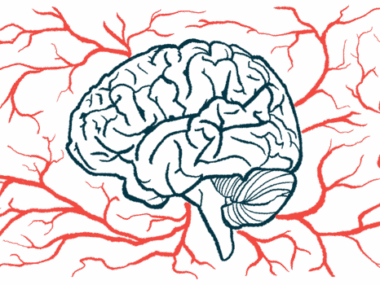I’m sure my Angel understands more than can be proven
Much remains unknown about how Angels process, comprehend information
Written by |

“Does she understand?” a friend asked me as Juliana watched a show on her iPad.
It’s not uncommon for people to ask me if Juliana, my 13-year-old daughter with Angelman syndrome, understands what’s going on around her. Comprehension is a tricky topic when you’re dealing with a neurogenic disorder like Angelman.
“She may not get all of the little nuances in the conversations,” I reply. “But she does understand the simple things in the show.” Of course, I have no medical evidence to support my response, but my observations help me determine her level of comprehension. I know she understands a lot more than we can prove.
She has great iPad skills and can choose what she wants to watch. Her favorites are those with music, water, and ones that have action, such as those with the Power Rangers. Sometimes, when she’s watching a show, I’ll hear her laugh out loud or talk back to the screen. When this happens, I know she’s connecting with what she’s watching.
Comprehension at school
And the connections aren’t just at home. There are signs she’s connecting with her schoolwork, too.
In Juliana’s classroom, the students read using Picture Exchange Communication (PEC) graphics. Afterward, they answer comprehension questions. Juliana selects her answer by choosing the correct PEC. I’ve read several stories with Juliana using this method, and it’s surprising how many questions she can accurately answer. She’s definitely getting it.
Juliana’s teacher recently sent home a stack of graded assignments. I always go through Juliana’s work to keep anything that can be useful as homework or to review different concepts.
The stack yielded what I’d hoped. Juliana was on task and engaged with minimal prompting. Her comprehension was good, too. Most of the grades were about the same — that is, until I got to the assignment about the beach. I chuckled when I saw that Juliana had scored higher on that one.
Limited speech
While there’s no scientific proof about why, Juliana and some Angels are drawn to water activities. In this assignment, I’m sure her interest was piqued and she was eager to learn more about something she likes. She was probably more attentive for that lesson.
Juliana’s hyperactivity sometimes makes learning difficult. It doesn’t take much to distract her, which causes her to miss details. When she was younger and we participated in clinical trials, she had difficulty keeping her attention on tests. Years later, when she was older, she was able to complete them.
There’s still much we don’t know about how Angels process and comprehend information. Limited speech abilities, a characteristic symptom of Angleman syndrome, make the job harder, and that’s why I work to improve Juliana’s proficiency with her talker or augmentative and alternative communication (AAC) device. It’s probably the most obvious way to see if Juliana understands.
If I pose a question in the right way, like “Did you have a good day at school?,” she gets it and responds accurately, even if it’s not in words. In Juliana’s mind, she understands and proceeds to tell me exactly what I need to know.
Note: Angelman Syndrome News is strictly a news and information website about the disease. It does not provide medical advice, diagnosis, or treatment. This content is not intended to be a substitute for professional medical advice, diagnosis, or treatment. Always seek the advice of your physician or other qualified health provider with any questions you may have regarding a medical condition. Never disregard professional medical advice or delay in seeking it because of something you have read on this website. The opinions expressed in this column are not those of Angelman Syndrome News or its parent company, Bionews, and are intended to spark discussion about issues pertaining to Angelman syndrome.







Leave a comment
Fill in the required fields to post. Your email address will not be published.